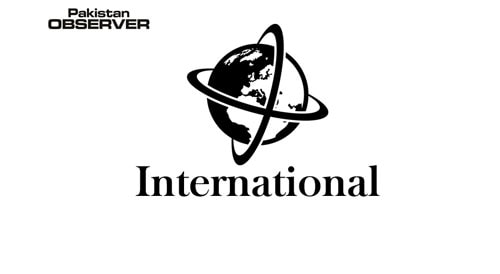Paris
The Human Rights Watch has questioned whether Libyan authorities can hold free and fair elections, casting doubt ahead of an international conference centred around efforts to hold the vote.
The group criticised what it said were Libya’s restrictive laws that undermine freedom of speech and association, according to a statement issued on Thursday, as well as the presence of armed groups accused of intimidating, attacking and detaining journalists and political activists.
Hanan Salah, a senior Libya researcher at Human Rights Watch (HRW), told Al Jazeera that while “Libya needs elections in order to move beyond this stage,” world leaders promoting this process have the obligation “to make sure that people can go and cast their vote in relative safety and get the best chance that they can possibly have at a free and fair election”.
The statement comes on the eve of an international conference on Libya in Paris that will focus on Libya’s presidential and parliamentary elections, planned as part of a United Nations-backed road map on December 24.
A Libyan election law set a first round of the presidential election for December 24 but said the date for parliamentary elections would not be set until January.
Human Rights Watch said: “The main questions leaders at the summit should ask are: can Libyan authorities ensure an environment free of coercion, discrimination, and intimidation of voters, candidates, and political parties?”
The New York-based watchdog also called on Libyan interim authorities to revoke all restrictive laws ahead of the elections, including laws that muzzle the press, punish participation in unlawful organisations and curtail the right to peaceful assembly.
Salah also listed a number of practical concerns, including ensuring that polling stations are safe and accessible, that independent monitors review the voting registry and that the media are able to report freely.
“The stakes are high,” Salah said. “People should really have the chance to choose who is going to be their government and who is going to be their leader.”
While elections should not be avoided because of the risk of conflict, “there is a possibility that the security situation could deteriorate,” Salah warned.
French President Emmanuel Macron is expected to open the high-level Libya conference on Friday, joined by leaders from some 20 states including United States Vice President Kamala Harris, German Chancellor Angela Merkel, Italian Prime Minister Mario Draghi, and United Nations Secretary-General Antonio Guterres.
Salah said leaders should “go back to the basics” and ask themselves whether they can “give Libyans the very best shot at free and fair elections”.
Libya has been engulfed in chaos since a NATO-backed uprising toppled longtime strongman Muammar Gaddafi in 2011. He was captured, and two months later, killed, by an armed group.
The UN peace process also led to the installation of an interim unity government and instated Abdul Hamid Dbeibah as prime minister.
He and others in the government swore not to run in any December election but analysts say he may consider doing so anyway.—Agencies










